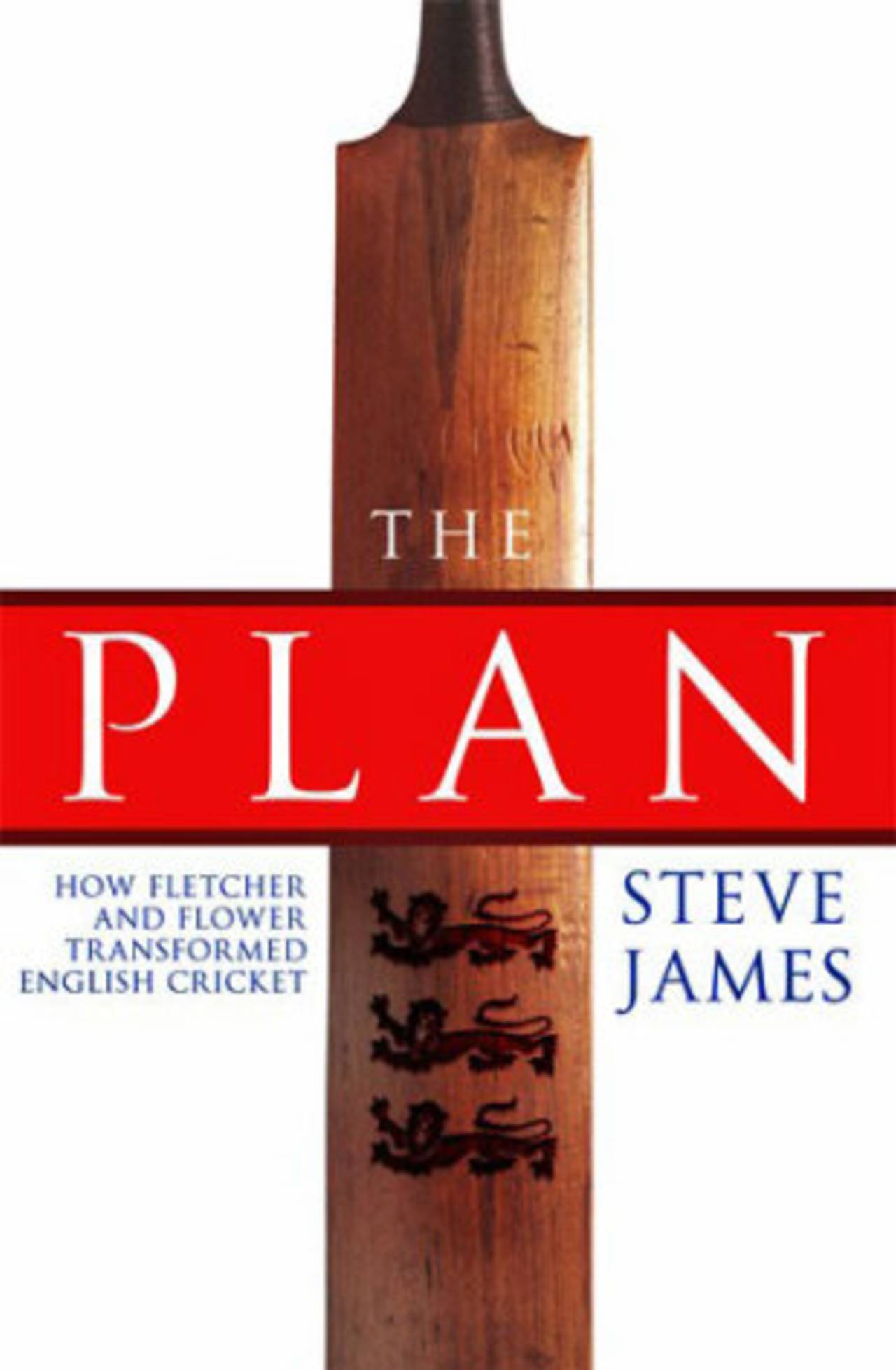Inside England's success story
This account of the 13 years it took to become No. 1 - from Fletcher to Flower - is a must-read for fans of English cricket
Sam Collins
Jun 9, 2012, 2:50 AM

Bantam Press
For those with a royalist bent, much of this English week has been all about celebrating the past and looking to the future, so it seems appropriate to be discussing a book that is essentially a modern history of the men ruling English cricket. Steve James' The Plan takes the reader through the 13 years it took England to rise from the bottom to the top of the world Test rankings between 1999 and 2011, while profiling the coaches, captains and administrators who effected the transformation.
The Plan actually comes from a much-used Zimbabwean phrase "making a plan", one that the author tells us is especially used in times of trouble, of which there was a lot for English cricket fans in that 1999 summer. But if there was no cunning "plan" for English cricket in the Baldrick sense back then, there was at least intent on behalf of the England and Wales Cricket Board, coupled with a fair bit of luck, which helped put some tremendously skilful coaches in position. That refers first to Duncan Fletcher and then Andy Flower, and it is they who The Plan is most concerned with.
James is a former Glamorgan (and briefly England) opening batsman who succeeded Michael Atherton as columnist for the Sunday Telegraph. Ex-pros can be the subject of lazy generalisations when they move into the press box, but James' quiet excellence, uncomplicated style and informed perspective make his Sunday column a "don't-miss", as one respected ex-correspondent put it to me. The Plan is more of the same.
He was certainly in a unique position to write this book, having played under Fletcher at Glamorgan and ghosted two books for him, and been a friend of the Flower family for over 20 years. The author declares his hand at the start. Is the potential bias a problem? No - as befits a batsman with close to 50 first-class centuries, he is (almost) unerringly balanced. James is present throughout, breaking up the history lesson with his own memories and experiences of those involved. This is his story and he makes it compelling. I don't fish, and I don't think James does either, but I could imagine it being told over several easy afternoons on the river bank.
Given the scope, James' achievement is to make a 13-year summation digestible. He manages not to get drawn into the cricketing politics of the wider world, and was deliberately selective with those he interviewed (neither Fletcher nor Flower among those spoken to). The result is an unashamedly England-centric book that feels informed but never flooded. Running chronologically from the appointment of Fletcher and Nasser Hussain back in that miserable summer of '99, through the periods of Michael Vaughan, Andrew Flintoff, Peter Moores, and on to Andrew Strauss and Flower, very little is left untouched in James' thorough analysis. He is at pains to be fair - never better illustrated than by his excellent dissection of Moores' unfortunate time in charge.
Amid the Diamond Jubilee hype, Moores stands as proof that successions are not always ideal, and with Flower and Strauss unlikely to last 60 years (James himself cannot see Flower lasting much longer) stage three of "The Plan" - if Fletcher was stage one and Flower stage two - could yet be the most important for the legacy. James observes how England have struggled to make the most of players in the last third of their international careers, and with an ageing core (Strauss 35, Swann 33, Pietersen 32 this month, Trott 31, Prior 30, Anderson 30 next month) it serves notice that the next few years will have to be handled carefully. Mick Newell of Nottinghamshire and Andy Hurry of Somerset are among those being monitored as Flower's successor, but much depends on whether the Moores experience has scarred the board from appointing within the English system.
There will be other pressures too. If The Plan charts genuine progress on and off the pitch for England, it is clear there is still work to do. Just as the England team has become a ruthlessly efficient cricketing machine under Flower, so the cricketing side of the ECB (led by Hugh Morris) seems to have learned from the mistakes of the '90s and mid-2000s. With schedules unrelenting and Twenty20 leagues springing up everywhere, providing players with potential riches and difficult choices, the alternatives to Test cricket and the threats to national boards are a clear and present danger. Time will tell whether plonking the front foot down, as the ECB has seen fit to do with the recent Pietersen affair, is the best way forward.
Back to The Plan, and one final word. James was the man handed Justin Langer's Ashes dossier in 2009, and in scolding himself for his initial indifference to a genuine scoop, he neatly sums up what is a major strength of his own book. "What I was forgetting here was the thrill for the members of the public of being on the inside, however fleetingly; of suddenly being privy to thoughts and observations that are usually out of their reach. Every fan craves to be inside the dressing room". Let James take you there.
The Plan: How Fletcher and Flower Transformed English Cricket
by Steve James
Bantam Press

by Steve James
Bantam Press
Sam Collins is 50% of The Chuck Fleetwood-Smiths and writer/producer of Death of a Gentleman